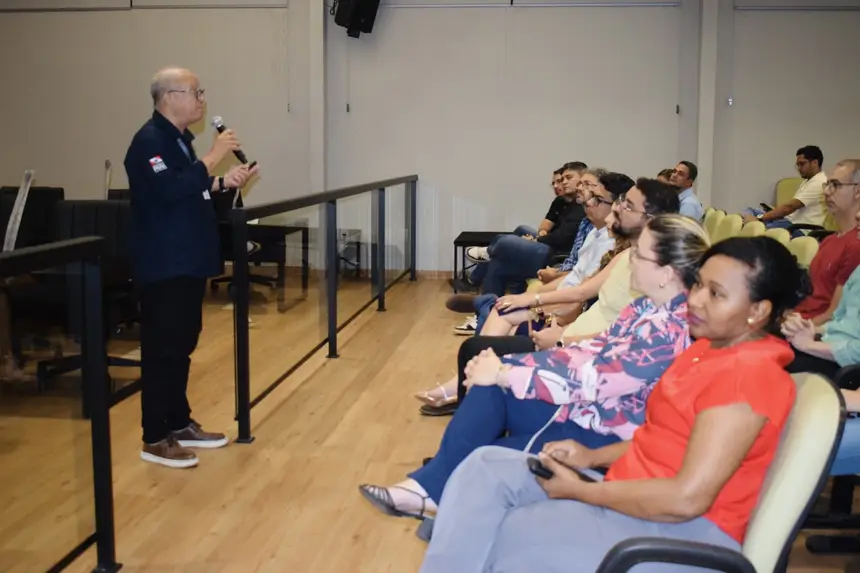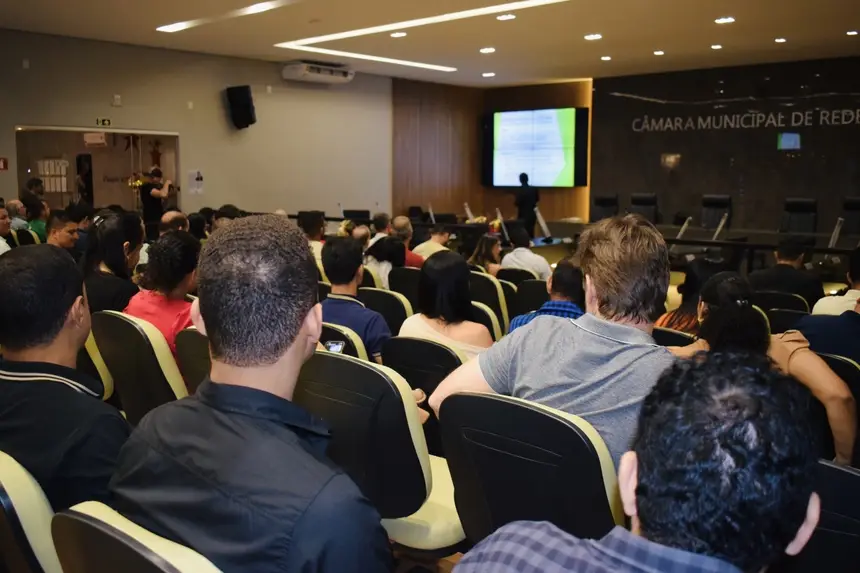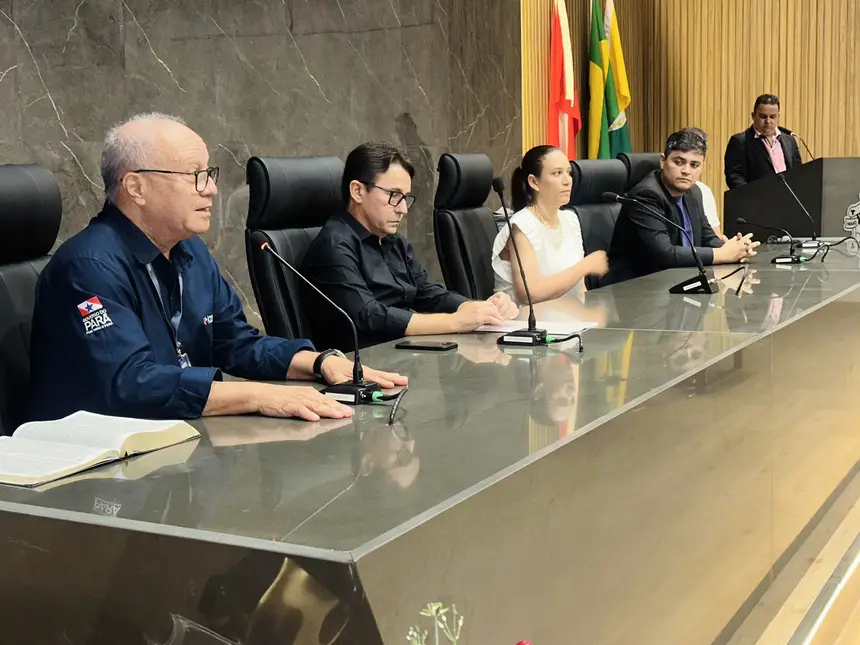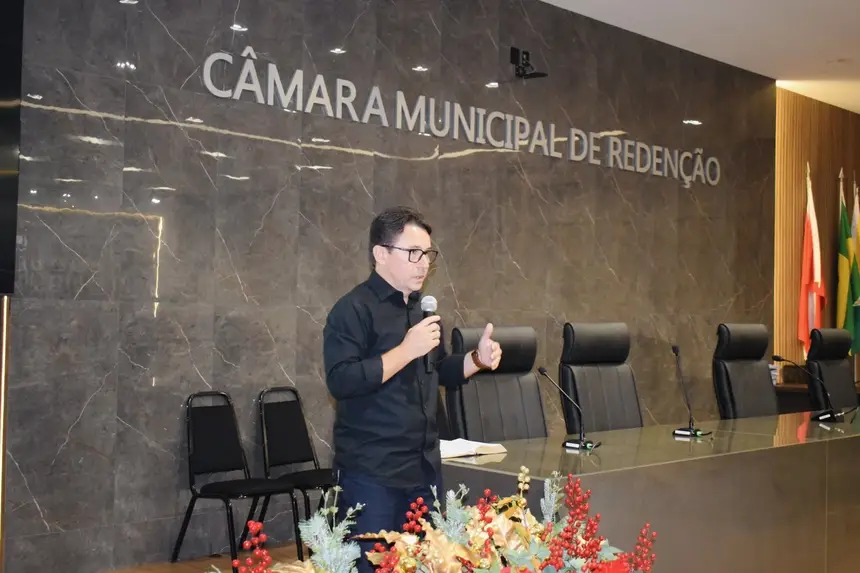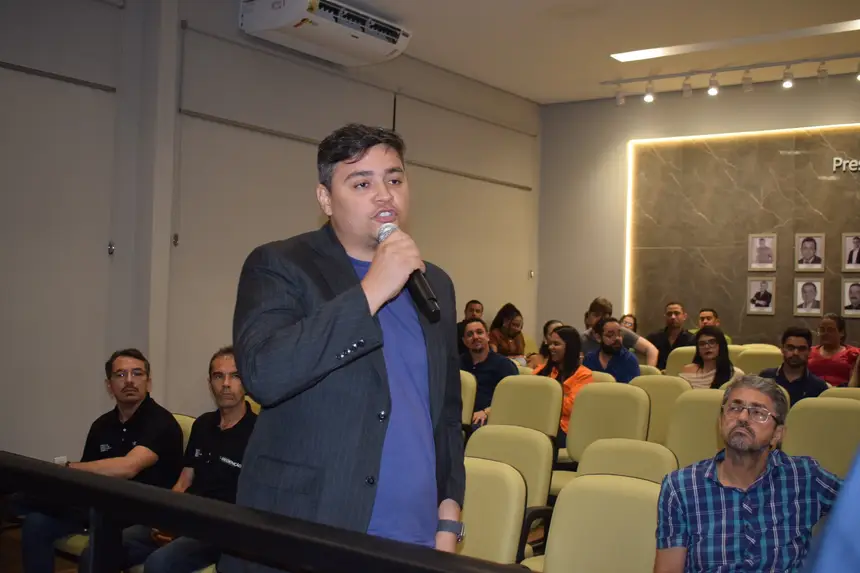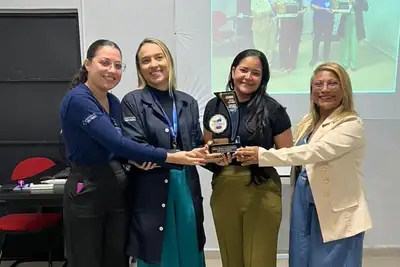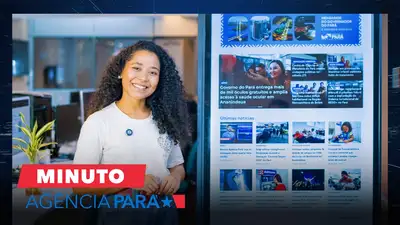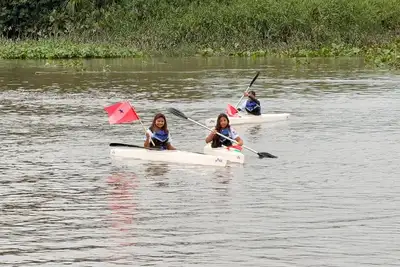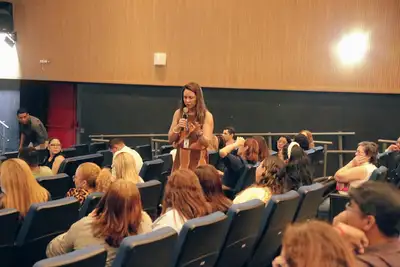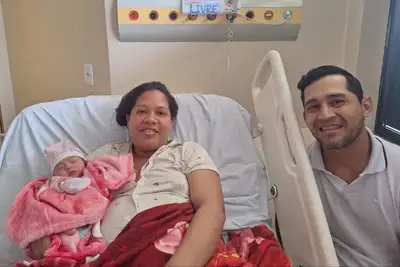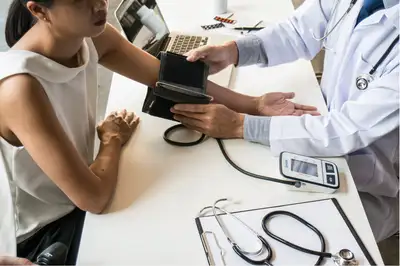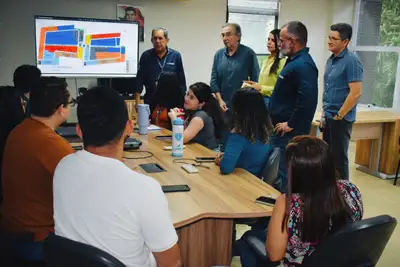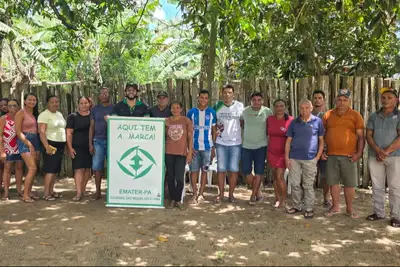Redenção debates productive future in seminar that unites public power and private sector
Meeting promoted by Codec offers strategic reading of the municipality and projects new opportunities for southern Pará

In Redenção, development has ceased to be just a possible horizon and has come to occupy the center of discussions about the future of the region. On the night of this Wednesday (26), the Government of Pará, through the Economic Development Company (Codec), and the City Hall of Redenção brought together local leaders, entrepreneurs, and representatives of institutions at the Economic Development Seminar, held in the Municipal Chamber's plenary. The meeting served as a qualified panel for reflection on opportunities, challenges, and paths to strengthen the municipality's competitiveness.
The opening featured the presence of Vice Mayor Renata Rocha, the municipal secretary of Economic Development, Gilmário Fontenele; councilor Arnon Lustosa; the vice president of the Commercial and Industrial Association, Leigmar Miranda; and the director of Strategies and Institutional Relations at Codec, Evandro Diniz.
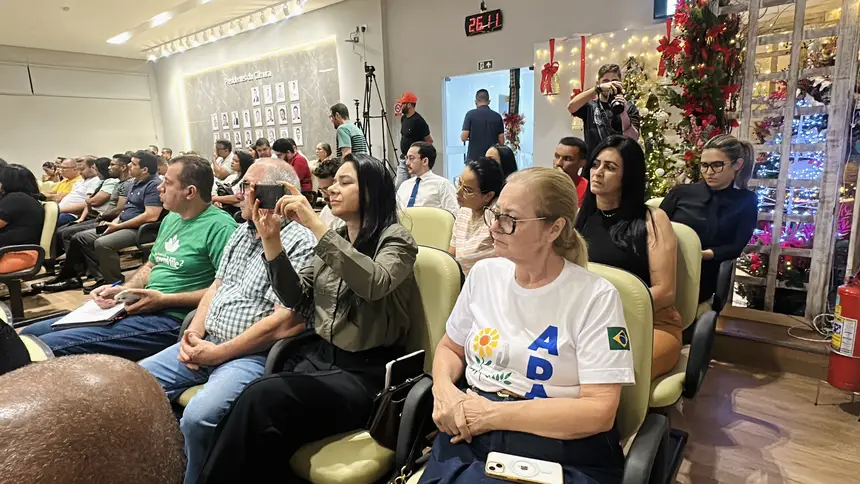
The panel highlighted the importance of combining strategic vision with local leadership. “Redenção has a productive profile, talent, and entrepreneurial energy. Our challenge is to transform these assets into concrete opportunities for those who live here,” said the vice mayor.
The technical analysis from Codec was presented by Evandro Diniz and the manager of Development and Economic Studies at Codec, Aline Tavares. The presentation offered an accurate snapshot of the local economy. The studies show the strength of agribusiness, the advancement of the service sector, the relevance of exports, and the concrete possibility of productive diversification with the establishment of new industries.
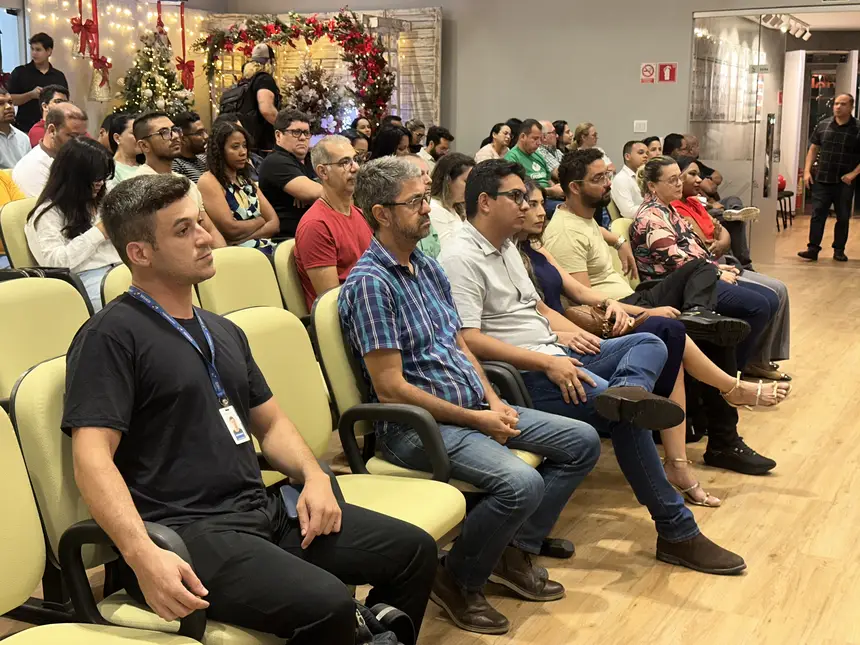
“Codec works to reduce bottlenecks, increase competitiveness, and prepare municipalities to receive higher value-added investments,” highlighted Evandro. Aline reinforced that Redenção has the structural conditions to safely and efficiently receive new enterprises.
The business sector, represented by Leigmar, drew attention to the potential for economic activity expansion and the need for incentives and clear guidelines to guide new investments. The assessment reflects the perception of those who closely follow the local economic dynamics and recognize the role of public policies in creating a more competitive environment.
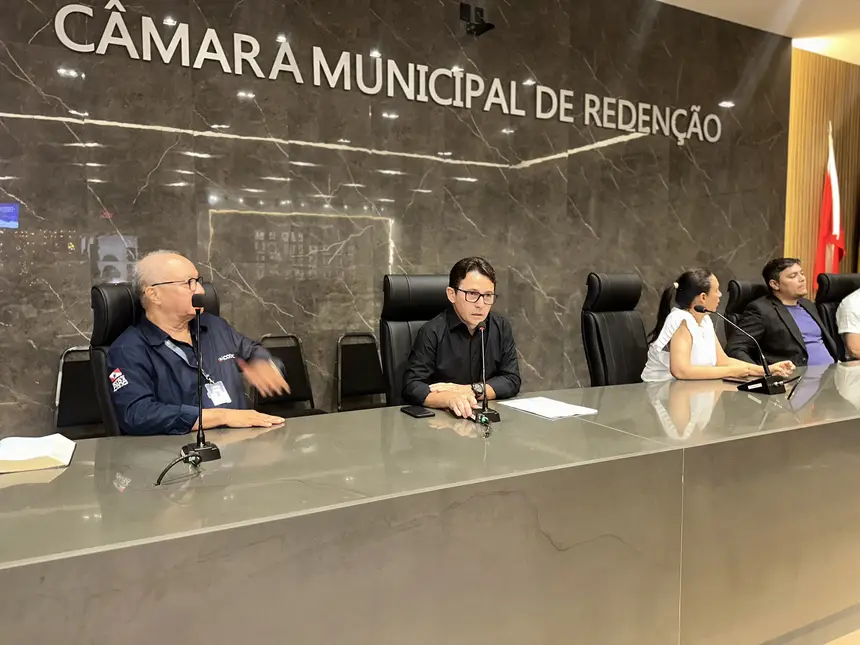
The municipal secretary, Gilmário Fontenele, presented the basis of the economic planning being structured by the City Hall and detailed the Intentions Protocol No. 07/2025, signed with Codec.
The document provides for an updated socioeconomic diagnosis, a review of the municipal incentives law (PRODE), a study for the implementation of the Araguaia Agroindustrial Park, the preparation of the Investor's Guide, technical qualification of the municipal team, and modernization of the institutional environment aimed at entrepreneurs.
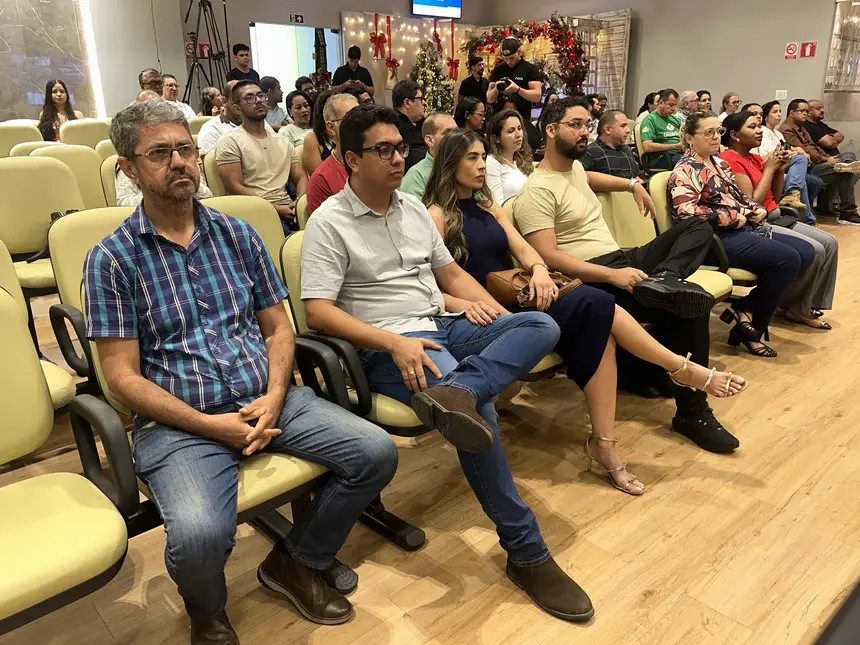
Fontenele emphasized that consistent decisions require technique, coordination, and a vision for the future, in addition to addressing challenges related to energy, logistics, professional qualification, and governance.
The participation of the rural sector was marked by the speech of Rosângela Hanemann, president of APAE — Association of Parents and Friends of Exceptional Individuals. She reported on the productive evolution of the region and advocated for industrialization as a natural path to add value to what Redenção already produces. “I saw this region being born and transforming. Agribusiness thrives in southern Pará, and we need to industrialize Redenção,” she stated. Rosângela also highlighted the importance of legal security for producers and expressed interest in the Investor's Guide, stating that initiatives of this kind expand opportunities for those wishing to invest in the municipality.

The meeting, which continued until 9 PM, highlighted that Redenção combines entrepreneurial energy, a consistent productive base, and institutional articulation to advance in a more mature development agenda connected to the economic trends of southern Pará. In the words of Evandro Diniz, Redenção has potential and capacity, and the challenge now is to transform these conditions into lasting results, guided by planning and a long-term vision.
The night ended with a shared perception among participants: the municipality is experiencing a strategic moment, where qualified information, dialogue, and alignment between the State, City Hall, and the productive sector become central elements to drive new investments and strengthen a more dynamic business environment.


